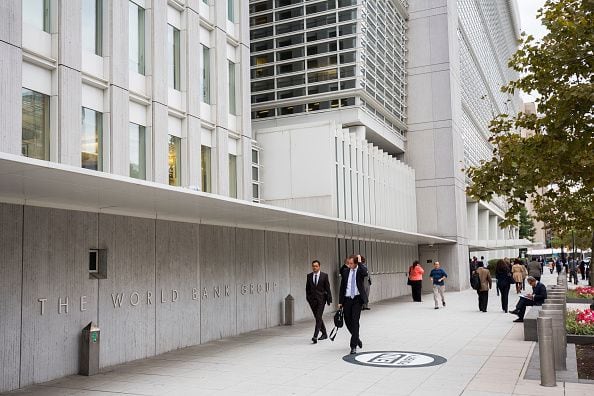
World economic growth may fall to the point of “dangerously close” of the recession in 2023, the World Bank (WB) said on Tuesday, cutting its forecasts due to high inflation, the increase in interest rates and the Russian invasion of Ukraine.
Economists have warned of a global economic downturn as countries battle rising costs and central banks simultaneously raise interest rates to cool demand, which, in turn, worsens financial conditions amid unrest. for the war in Ukraine.
The latest WB forecasts point to a “sharp and lasting slowdown”, with global growth of 1.7%, about half of what was forecast in June, according to the latest report “World economy perspectives”.
recession risk
This would be the weakest pace of growth in almost three decades and is only overshadowed by the 2020 pandemic-induced recession and the 2008-2009 global financial crisis.
“Given the fragile economic conditions, any new adverse event… could send the world economy into recession“, according to him BM. Those factors include higher-than-expected inflation, sharp jumps in interest rates to curb prices, or a return of the pandemic.
In advanced economies like the United States, growth will probably slow to 0.5% in 2023, 1.9 points below previous forecasts. Meanwhile, the euro area is expected to stagnate.
For China, growth of 4.3% is expected this year, 0.9 points less than what was calculated in June.
The prospects areespecially devastating for many of the poorest economies, where poverty reduction has already stalled”, added the bank.
“Emerging and developing countries face a multi-year period of slow growth weighed down by heavy debt burdens and weak investment”, warned the president of the BMDavid Malpass.
Although central banks, including the Federal Reserve (fed) of the United States, they raised interest rates during the last year to contain the rise in prices, the burden on the economies “will worsen” as the policies take effect, according to the World Bank.
“The three main engines of global growth – the United States, the euro zone and China – are experiencing pronounced weakness, with adverse repercussions for emerging market and developing economies”, added the bank.
For the time being, inflation has risen on the back of the pandemic, supply shocks and, in some cases, currency depreciations relative to the strength of the US dollar.
Although expected to decline, inflation will remain above pre-pandemic rates, according to the bank.
The slow and weak growth does not yet mark a recession, he said Ayhan Kosechief economist of the bank.
“In the short term, we focus on the risk of possible financial stress, if interest rates rise further in the world”, he told AFP.
If this happens and, furthermore, inflation persists, “could trigger a global recession“, he claimed.
Poverty, climate
Among the most affected areas is sub-Saharan Africa, which concentrates around 60% of the world’s extreme poverty.
The expectation is that the growth of its per capita income during this year and the next will be of an average of only 1.2%, which is “a pace that could cause poverty rates to rise, rather than fall“, according to him BM.
The report also points to the challenges of small countries, with a population of 1.5 million or less, which have been particularly affected by the pandemic.
Those countries often suffer losses from weather disasters “which average about 5% of GDP per year,” the bank says.
“Given the higher probability of these types of natural disasters, we must take into account that these risks will materialize more often in the future.Kose stressed.
Source: AFP
Source: Gestion
Ricardo is a renowned author and journalist, known for his exceptional writing on top-news stories. He currently works as a writer at the 247 News Agency, where he is known for his ability to deliver breaking news and insightful analysis on the most pressing issues of the day.











